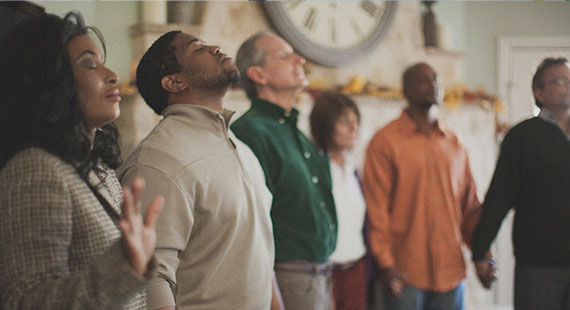If the most diverse place in eternity is going to be heaven, then it is time for us to give an example of that diversity on earth!
Lewology
One of the major defaults and detriments of the Christian church in America is that it keeps valuing race and its cultural identity much more that it values the divine identity of Jesus Christ. This is a spiritual problem that is stifling evangelism efforts and hijacking brotherly and sisterly unity within the body of Christ. The racial and cultural walls of division and separation are getting wider, deeper and taller as our country becomes more and more diversely populated.
I believe Scripture is crystal clear that a local church should work diligently and deliberately to reflect the racial and diversity complexion of its community and mission field. Regardless if everyone in the church’s missional reach is of the same race or ethnicity, the church should at least have a clear strategy to reach and influence every person with the gospel of Jesus Christ. No one should be excluded, especially because of his or her race.
If your church is located in a community or near a community that is racially or culturally diverse, but the members in your congregation do not reflect that community, here are five strategies to assist you in considering and honoring biblical diversity:
Strategy 1: Offer the love of God to everyone in your community
The salvation message of John 3:16 is a reminder that the gospel of Jesus Christ is for everyone. No one should ever be excluded from hearing the greatest news ever given to the world. Challenge your church to be intentional representing the love of God and showing holy respect to all people even if they think they don’t deserve it. The power of the gospel is, the less people deserve it, the more they need it.
Strategy 2: Approach your community with eternity in mind
In Revelation 7:9-10, we are given a beautiful picture of the redeemed people of God gathered around the throne of God worshipping and praising God together. These redeemed people are divinely described as a “vast multitude from every nation, tribe, people, and language, which no one could number, standing before the throne and before the Lamb.” If this is what the Church is going to like in eternity, why can’t the church be an earthly example of that today?
Strategy 3: Be a gospel-centered church and not a political-centered church
There is nothing more important to any community than preaching the gospel of Jesus Christ. Beware, public political alignments can easily and quickly divide and alienate the people we are trying to reach with the gospel. As followers of Jesus, we must pray for and respect our political leaders, but we should never allow politics or politicians to hijack the mission of the church. The mission should always be to reach people of all colors, cultures and classes with the gospel of Jesus Christ. Keep in mind, it is the gospel that is the hope for the world and not politics.
Strategy 4: Always value people more than you value your culture
In general, cultures are not right or wrong; they are simply different. It is our cultures that defined our people groups, worldviews, likes and dislikes. However, we should not allow our cultural differences to become points of conflicts or controversies. Encourage your church members to learn about other cultures. Encourage your church members to become genuinely interested in people of other ethnicities and cultures and to view their cultural differences as learning experiences.
Strategy 5: Practice holy humility
It is very easy to be stubborn, arrogant and resistant regarding ethnic and cultural differences. Instead, challenge your church to approach people of different ethnic backgrounds with a spirit of holy humility. Encourage them to suspend their biases and prejudices and develop a sincere desire to listen, learn and understand other cultures. The opportunity to discover and understand someone else’s cultural can only add value to your life.
Questions for reflection
- Is biblical diversity represented at the highest level of leadership in my church?
- Are recruitment practices for hiring and inviting volunteers sensitive to biblical diversity?
- Does someone from the non-majority culture of my church share the pulpit?
- Does my church have an overall strategy for embracing biblical diversity?



